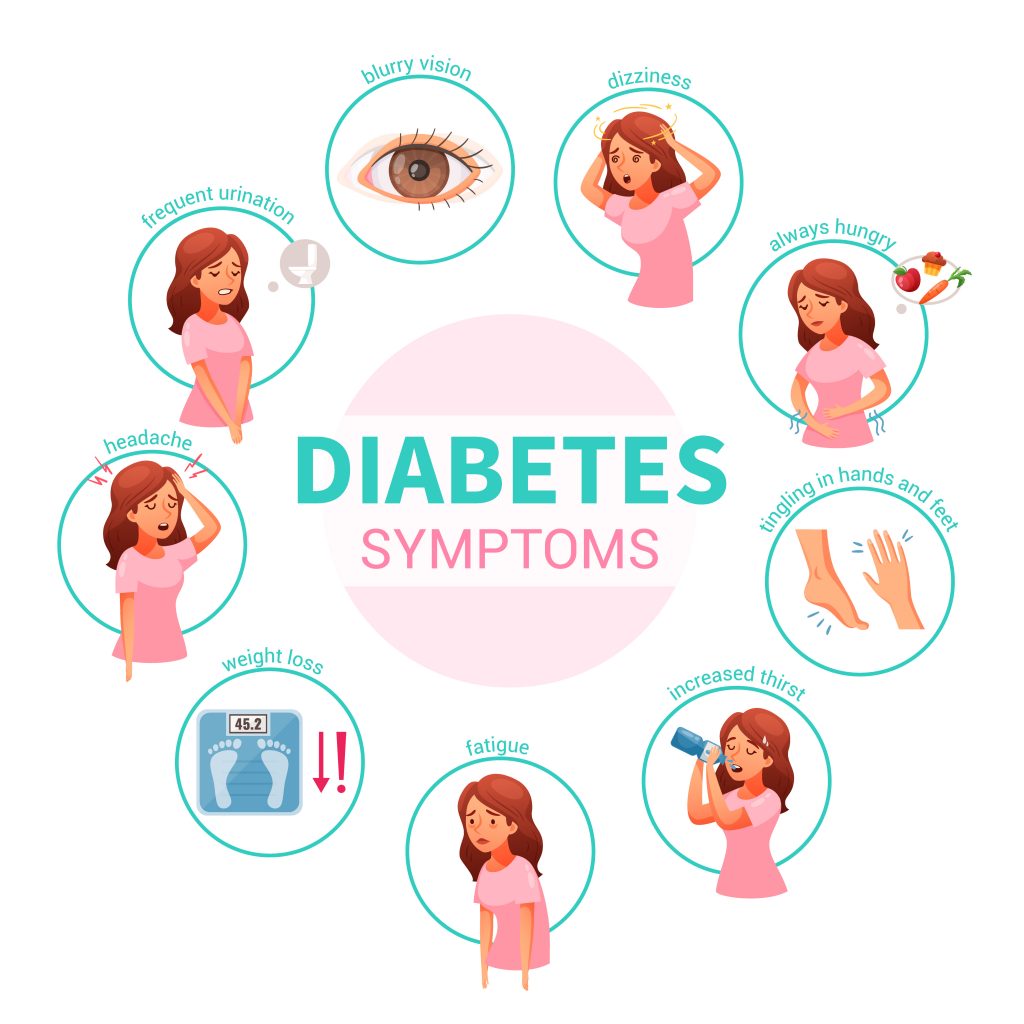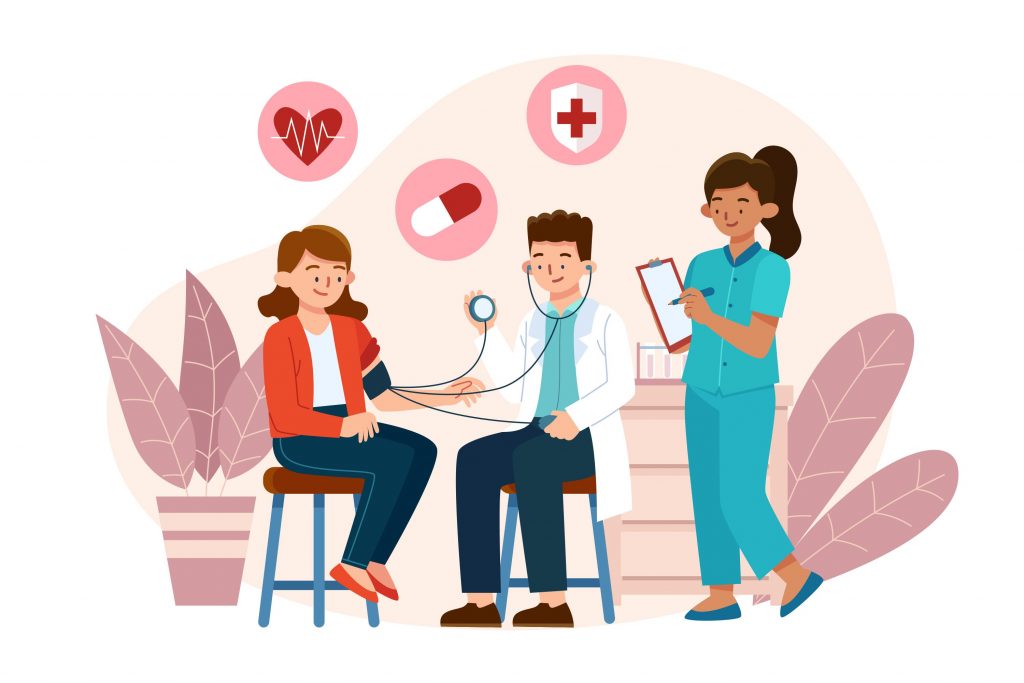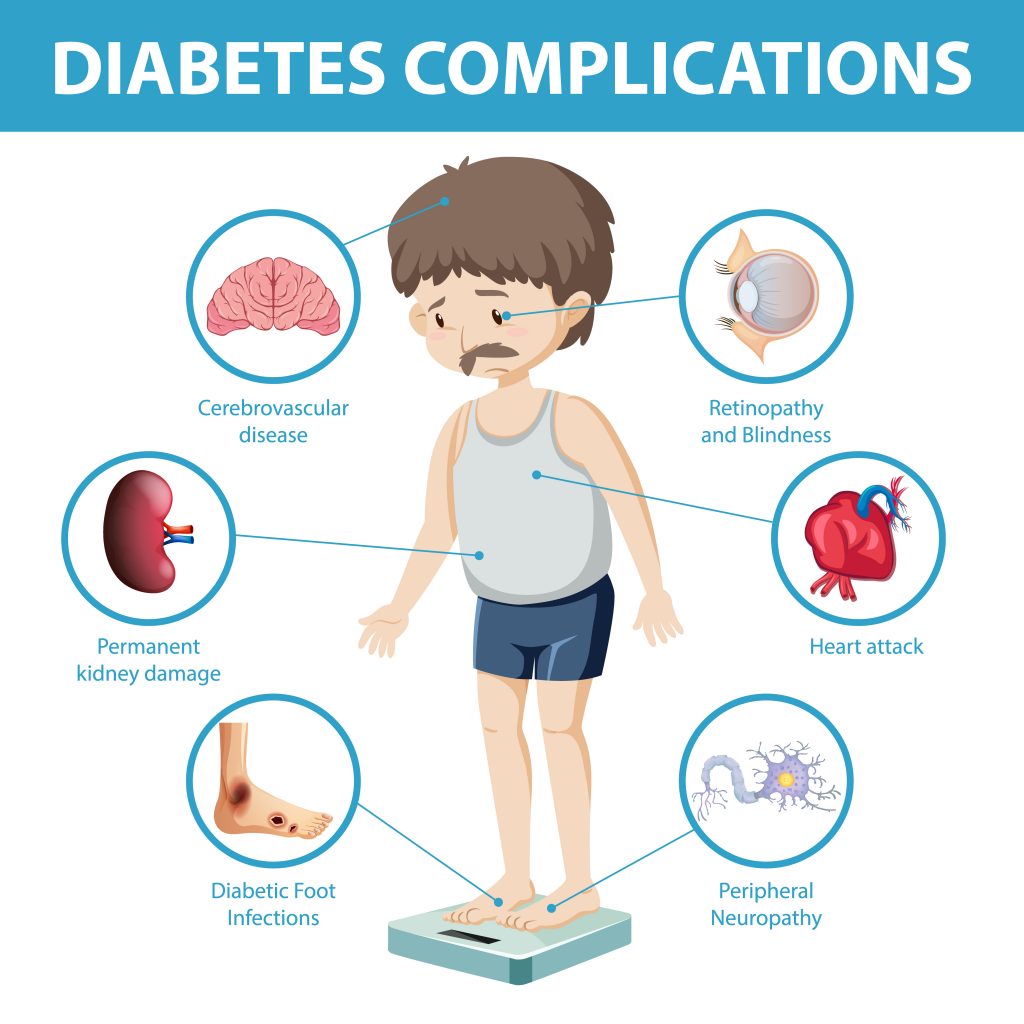TCM for Diabetes
When it comes to treating diabetes, there’s no one-size-fits-all approach. Some patients have unique bodies that react differently to medication and some have allergies that make treatment difficult. Because of this, patients often find themselves at a loss of what to do. Western medicine is effective, but for many people, it’s too much, or not enough—and that’s where TCM comes in.
TCM is more than just a treatment method; it’s a lifestyle that involves mindful eating and exercise habits. It is also best used in conjunction with western diabetic treatments, especially when it comes to natural, holistic care. In addition, patients who go through diabetic treatments often suffer from pain, stress, and discomfort. All of which can be treated by TCM without the use of strong drugs or invasive surgery.

What is Diabetes (消渴, Xiao Ke)?
Diabetes occurs when your blood glucose levels (otherwise known as blood sugar levels), are too high.
Type 1 diabetes: No one knows what causes type 1 diabetes – diet and lifestyle choices are ruled out. Scientists believe (for now) that it is caused by genetics or an autoimmune reaction that stops your body from making insulin. You will need to take insulin every day to survive. You can contract it at any age and there is no definite cure.
Type 2 Diabetes: Caused by genetics and lifestyle factors, ie. inactivity and obesity. With type 2 diabetes, your body doesn’t make/manage insulin well and can’t keep blood sugar at normal levels. If your family has diabetes, it is best to get tested so you can catch the disease early. You can develop type 2 diabetes at any age, and it can be prevented or delayed with healthy lifestyle changes such as losing weight, eating healthy food, and being active.
How can TCM help you with diabetes?
Reliable studies have shown that TCM serves as an effective complementary/alternative medicine for diabetic patients. In addition, it is affordable and boasts of little to no side effects. This is why TCM is popular as complementary, alternative medicine for diabetes.
For example, in a study conducted in 2013, a controlled, double-blind trial was conducted with diabetic patients. Results showed that herbal pills led to a significant reduction in risk of hypoglycemia (low blood glucose/low blood sugar) and improvements in the body’s glycemic control after 48 weeks.

TCM relieves symptoms of diabetes and side effects of western medication with many well-researched treatment plans. You can expect:
- Acupuncture
- Moxibustion
- Herbal medicine
- Diet therapy
- Tui Na (a traditional form of Chinese massage)
TCM also looks at holistic care and provides the necessary treatments for any pain, discomfort, and stress outside the diabetes problem. This is because TCM believes that all parts of the body are connected. Your mental health will affect your recovery, so we want to help relieve your stress naturally and with as few side effects as possible.
Important disclaimer
TCM helps diabetic patients a lot, but it is worth noting that TCM does not offer a complete cure for diabetes. Patients are always encouraged to visit a western clinic from a licensed doctor. They have the appropriate equipment to give blood readings of your glucose levels and prescribe insulin injections (if needed). However, there is also a reason why TCM is the most sought-after alternate medicine for patients who struggle during their recovery.
Note: It is especially important to discuss and clarify drug-herb interactions with your chosen TCM practitioners and western physician. Bao Zhong Tang wants our patients to experience the safest, most efficient care possible. Let us know what drugs and treatments you are currently under.
Why choose Bao Zhong Tang?
At Bao Zhong Tang Singapore, we are confident that we will be able to help any patient suffering from diabetes in some way, be it relieving them of their discomfort, or helping them lower their blood sugar levels. Our specialists are professionally certified by the Singapore TCM board and are extremely experienced with diabetic symptoms, so regardless of circumstances, we are sure that we will be able to provide relief to each individual. In addition, Bao Zhong Tang understands the advantages and limitations of both eastern and western practices; we do not discriminate between them. Patients who take up our services can rest easy knowing that Bao Zhong Tang will wield our medical knowledge expertly and give each individual the best medical treatments possible.
Bao Zhong Tang is assured in our knowledge of the medical field. We are constantly collaborating with established institutions to discover and publish new scientific and clinical evidence on TCM procedures and therapies. We want to set the standard for TCM in Singapore and we care very much for our patients. We hope that this helps you gain confidence in our ability to provide the most optimal treatment for your needs. Bao Zhong Tang guarantees that we will only use the best equipment, medicinal herbs, and physicians in the market to provide the best TCM experience for you.
When you take up Bao Zhong Tang’s services, we will not just provide treatment based solely on your symptoms. Our licensed practitioners will also look out for other underlying conditions that you may not have known were problematic because we strongly believe in prevention, cure, and restoring the harmony of your Yin and Yang as a whole. So, if you are on the lookout for the best TCM clinic in Singapore, look no further!
- For your convenience our physicians are bilingual,
- Female physicians are available.

Citations
Ji, Linong, Xiaolin Tong, Hongyuan Wang, Haoming Tian, Huimin Zhou, Lili Zhang, Qifu Li et al. “Efficacy and safety of traditional Chinese medicine for diabetes: a double-blind, randomised, controlled trial.” PloS one 8, no. 2 (2013): e56703.
https://journals.plos.org/plosone/article?id=10.1371/journal.pone.0056703
Weidong Xie, Yunan Zhao, Yaou Zhang, “Traditional Chinese Medicines in Treatment of Patients with Type 2 Diabetes Mellitus”, Evidence-Based Complementary and Alternative Medicine, vol. 2011, Article ID 726723, 13 pages, 2011. https://doi.org/10.1155/2011/726723
https://www.hindawi.com/journals/ecam/2011/726723/


